Nigeria at a Crossroads: Leadership, Development, and the Urgent Case for Southern Stewardship
A Special Report by The National Patriots & HeadlineNews.News
Since gaining independence in 1960, Nigeria has witnessed a turbulent political history defined by alternating military and civilian rule, ethnic rivalry, and systemic underdevelopment. At the heart of this debate lies the critical issue of leadership distribution between the North and South. While the North has occupied the country’s apex leadership position for over 47 of its 65 post-independence years, it remains the most underdeveloped and insecure region.
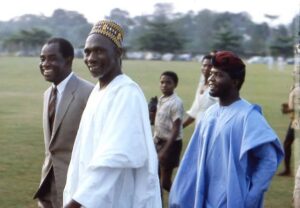
Nigeria’s post-independence history has been shaped by regional dominance. The North has occupied the presidency for around 47 of 65 years (≈ 70%), yet remains the most underdeveloped and insecure part of the country.
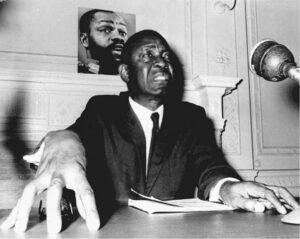
Amidst that backdrop, President Bola Ahmed Tinubu—a Southern leader—has embarked on a transformative agenda, investing heavily in irrigation, agriculture, roads, healthcare, and regional commissions. This report provides a fact-based, powerful argument for why Southern stewardship must continue.
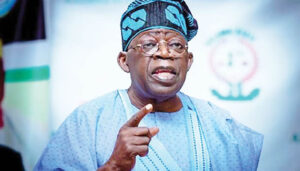
Leadership Breakdown (1960–2025)
| Leader | Years in Power | Region |
|---|---|---|
| Tafawa Balewa (PM) | 1960–1966 | North |
| Aguiyi Ironsi | Jan–Jul 1966 | South |
| Yakubu Gowon | 1966–1975 | North |
| Murtala Mohammed | 1975–1976 | North |
| Olusegun Obasanjo (Military) | 1976–1979 | South |
| Shehu Shagari | 1979–1983 | North |
| Muhammadu Buhari (Military) | 1983–1985 | North |
| Ibrahim Babangida | 1985–1993 | North |
| Ernest Shonekan (Interim) | 1993 | South |
| Sani Abacha | 1993–1998 | North |
| Abdulsalami Abubakar | 1998–1999 | North |
| Olusegun Obasanjo (Civilian) | 1999–2007 | South |
| Umaru Yar’Adua | 2007–2010 | North |
| Goodluck Jonathan | 2010–2015 | South |
| Muhammadu Buhari (Civilian) | 2015–2023 | North |
| Bola Ahmed Tinubu | 2023–Present | South |
Cumulative Leadership Time:
North: ~47 years
South: ~18 years
The Paradox of Power Without Development
Poverty and Education
- Over 80% of the population in the North-West and North-East live below the poverty line.
- The North has the highest number of out-of-school children in sub-Saharan Africa.
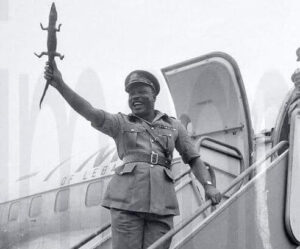
Security
- Terrorism, banditry, and kidnapping have become normalized in large swathes of the North.
- Buhari’s administration spent over N15 trillion on security with little measurable impact.
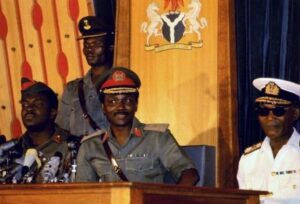
Infrastructure & Rent-Seeking
- Despite substantial federal investments, critical infrastructure remains poor.
- A culture of dependency emerged, relying on oil revenues and political influence rather than productivity.

Buhari’s Lost Opportunity
- Trillions of naira were allocated under the guise of agricultural stimulus and feeding programs—much of it was mismanaged.
- The Ministry of Humanitarian Affairs disbursing massive, unaccounted social intervention funds.
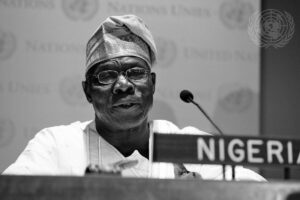
- Admission by his aide, Bashir Ahmad, that large sums meant for Northern farmers were stolen.
- Instead of leveraging federal power to transform the North, Buhari’s administration deepened its economic dependency.
Tinubu: Leading With Purpose and Results
Agricultural Revolution: Dams and Dry Season Farming
- In 2025, Tinubu approved N350 billion to expand 12 River Basin Development Authorities.
- Completed and ongoing dam/irrigation projects include Bakalori (Zamfara), Dadin‑Kowa (Gombe), Rafin Yashin (Niger), Odo‑Ape (Kogi), plus 565 water‑and‑sanitation schemes across the country.
- Over 1.65 million smallholder farmers now benefit from irrigation infrastructure.
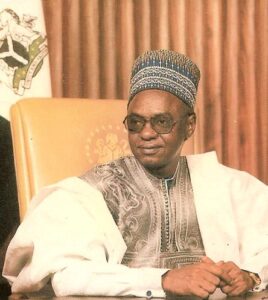
Fertilizer and Inputs Distribution
- Under the National Agricultural Development Fund, N100 billion was allocated to subsidize fertilizers, seeds, and farm equipment.
- Examples include:
- Benue State: 4,000 bags of fertilizer, irrigation kits, and rice seeds distributed.
- Wheat Program: Over 118,000 hectares cultivated in 15 states using improved inputs.
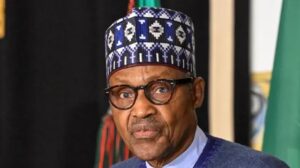
Inclusive Development: New Geopolitical Commissions
- Tinubu’s administration established Development Commissions for all six geopolitical zones, ensuring equity.
- A special commission was also proposed for the disadvantaged South-South region, addressing years of neglect.
- These bodies channel federal funds equitably across flagship projects in roads, water, education, and agribusiness.

Empowerment of State Governors
- No president has disbursed more funds to state governments in peacetime.
- Gombe State recently received N60 billion for an agro-processing hub.
- Northern governors acknowledge receiving more direct support than under any past administration.
- Federal procurement reforms—blockchain transparency and citizen‑feedback portals—support accountability.

Additional Major Interventions in the North
Healthcare & Cancer Center
- In Kafanchan, Kaduna, Tinubu converted the Sir Patrick Ibrahim Yakowa Hospital into a Federal Medical Centre (≈ 200 beds), commissioned in early 2025 to serve Kaduna, Plateau, Nasarawa, and Benue.
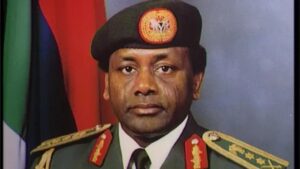
Kaduna Infrastructure: Light Rail & More
- In June 2025, Tinubu inaugurated several projects in Kaduna State, including:
- A 300-bed Bola Ahmed Tinubu Specialist Hospital.
- ₦100 billion Kaduna Light Rail Transit project.
- Vocational training institute, CNG bus fleet, and other development schemes.
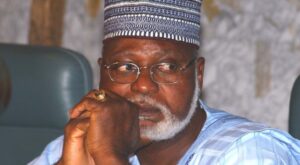
Ongoing Road Projects in Northern Nigeria
According to the Minister of Works, Sen. Dave Umahi:
- Northern Nigeria has around 756 km of ongoing road construction (3‑lane equivalent), compared to just 409 km in the South.
Major projects include:
- Sokoto–Badagry Superhighway (1,068 km)—378 km under construction in Sokoto/Kebbi.
- Sokoto–Zamfara–Katsina–Kaduna Road (275 km dualised).
- Abuja–Kaduna–Kano Highway (350 km dualised).
- BUA Tax Credit Corridor (256 km) across Jigawa, Katsina, and Kano.
- Zaria–Hunkuyi (156 km), Kano Northern Bypass (49 km), Borno Ring Road (110 km), Bama–Dikwa roads (100 km), etc.
- Inherited from prior administrations but proactively funded by Tinubu’s government.
- Northern Nigeria accounts for 53% of NNPC Tax Credit road projects vs. 47% for the South.
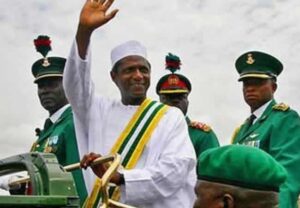
Why It Matters: South-Led Leadership With National Reach
Historical Injustice & Regional Competence
- Visionaries like Obafemi Awolowo and MKO Abiola were denied the presidency despite their qualifications and popularity.
- The South-West remains Nigeria’s most educated and entrepreneurial region, historically driving reform and fiscal innovation.
Performance Over Propaganda
- Tinubu’s administration demonstrates that a Southern president can deliver proportionally more investments in the North than any prior Northern-led government.
- Projects are transparent, measurable, and across sectors—not symbolic window dressing.
The Case for 30 More Years of Southern Leadership
- Historical Injustice
- Track Record of Performance
- Political Equity
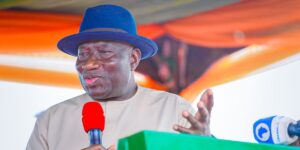
Sustained Southern leadership—rotating among South-West, South-South, and South-East—would:
- Correct historical imbalance.
- Reward competence and merit.
- Implement decentralized, accountable governance.
- Break cycles of dependency and rent‑seeking.
Conclusion: End the Propaganda, Focus on Results
Leadership must no longer be seen as a means of rent-seeking or regional dominance. The North’s historical monopoly on power has not benefited its people. Instead, Nigeria’s future lies in competence, inclusiveness, and evidence-based governance.
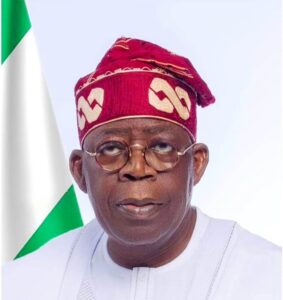
President Tinubu is not perfect, but his policies reflect a serious commitment to national transformation. The facts speak for themselves:
- Massive investments in agriculture and irrigation.
- Equal empowerment of all regions.
- Transparent and strategic fiscal devolution.
Let the legacy of leadership not be judged by region, but by delivery, fairness, and national renewal.

Dr. G. Fraser MFR
The National Patriots
This comprehensive report by the National Patriots and HeadlineNews.News is grounded in official statements, ministerial briefings, and respected media sources.



